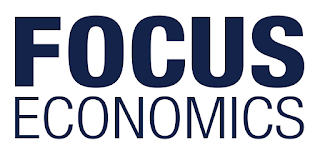Serbia
The economy had a mixed performance in 2017, with slow economic growth in the first half of the year followed by an acceleration in the second half. A flash estimate released by the Statistical Institute on 31 January put year-on-year economic growth at 2.5% in the fourth quarter, up from 2.1% in the third quarter and placing overall economic growth at 1.9% in 2017. Moreover, customs data suggested that exports grew healthily in December, although the trade deficit still increased as imports grew at a faster pace. Meanwhile, on the political front, local elections will take place in Belgrade on 4 March. Some politicians from the ruling Progressive Party had called for holding snap parliamentary elections alongside them. But, in a move that should steady the political landscape, President Aleksandar Vucić said on 8 January that his Progressive Party does not plan to call snap elections this year. Increased government spending, particularly on wages, pensions and infrastructure investment, should support domestic demand in 2018. Moreover, the continuation of accommodative monetary policy should support the economy this year. However, although public debt is now on a downward trend, it remains large enough to be of concern. FocusEconomics panelists expect GDP growth to reach 3.1% in 2018, which is up 0.1 percentage points from last month’s forecast. For 2019, panelists again project growth of 3.1%. Inflation accelerated from 2.8% in November to 3.0% in December. On 11 January, the National Bank of Serbia decided to maintain its key policy rate at 3.50% for the third consecutive month. FocusEconomics panelists see inflation averaging 2.9% in 2018. For 2019, our panelists expect inflation to rise to 3.3%.
Monetary Policy:
Consumer prices remained unchanged from the previous month in December, just as they did in November. According to the Statistical Institute, price increases for housing, water, electricity, gas and other fuels, transport, and recreation and culture were offset by lower prices for clothing and footwear, and food and non-alcoholic beverages. Inflation accelerated from 2.8% in November to 3.0% in December, precisely hitting the midpoint of the Central Bank’s target range. Annual average inflation climbed from 3.0% in November to 3.2% in December. Core inflation—which excludes volatile items including energy, food, alcohol and cigarettes—ticked down to 1.3% in December from 1.4% in November. The Central Bank has set its inflation target for this year and the next at 3.0% plus or minus 1.5 percentage points. FocusEconomics Consensus Forecast panelists expect inflation to average 2.9% in 2018, which is unchanged from last month’s forecast. For 2019, the panel sees inflation rising to 3.3%. Read More At FocusEconomics.
Monetary Policy:
Consumer prices remained unchanged from the previous month in December, just as they did in November. According to the Statistical Institute, price increases for housing, water, electricity, gas and other fuels, transport, and recreation and culture were offset by lower prices for clothing and footwear, and food and non-alcoholic beverages. Inflation accelerated from 2.8% in November to 3.0% in December, precisely hitting the midpoint of the Central Bank’s target range. Annual average inflation climbed from 3.0% in November to 3.2% in December. Core inflation—which excludes volatile items including energy, food, alcohol and cigarettes—ticked down to 1.3% in December from 1.4% in November. The Central Bank has set its inflation target for this year and the next at 3.0% plus or minus 1.5 percentage points. FocusEconomics Consensus Forecast panelists expect inflation to average 2.9% in 2018, which is unchanged from last month’s forecast. For 2019, the panel sees inflation rising to 3.3%. Read More At FocusEconomics.
Kosovo
From The World Bank & Chaganomics Research
Kosovo is a parliamentary republic. It declared independence on February 17, 2008 and is recognized as an independent country by 114 out of 193 United Nations members and by 23 out of 28 EU members.
Kosovo is a potential candidate for EU membership, a process that was accelerated with the signing of the Stabilization Association Agreement with the EU in October 2015, in force since April 2016. The current Government, a coalition comprised of five larger political parties and several smaller ones, was voted into office on September 9, 2017. It controls a slim majority, only 61 out of 120 parliamentary seats.
Although Kosovo’s economic growth has outperformed its neighbors and been largely inclusive, it has not been sufficient to significantly reduce the high rates of unemployment; provide formal jobs, particularly for women and youth; or reverse the trend of large-scale outmigration. The current growth model relies heavily on remittances to fuel domestic consumption.
Kosovo’s growth strategy needs to be focused on addressing the infrastructure bottlenecks in energy, creating an environment more conducive to private sector development, equipping its young population with the skills demanded by employers, and building up governance and the rule of law to fully reap the benefits of EU integration, unleash productivity gains, and create quality jobs that foster inclusion.
Chaganomics: Republic of Kosovo Per Capita Income is a mix at $3,641.00 and $3,890.70 respectfully.



